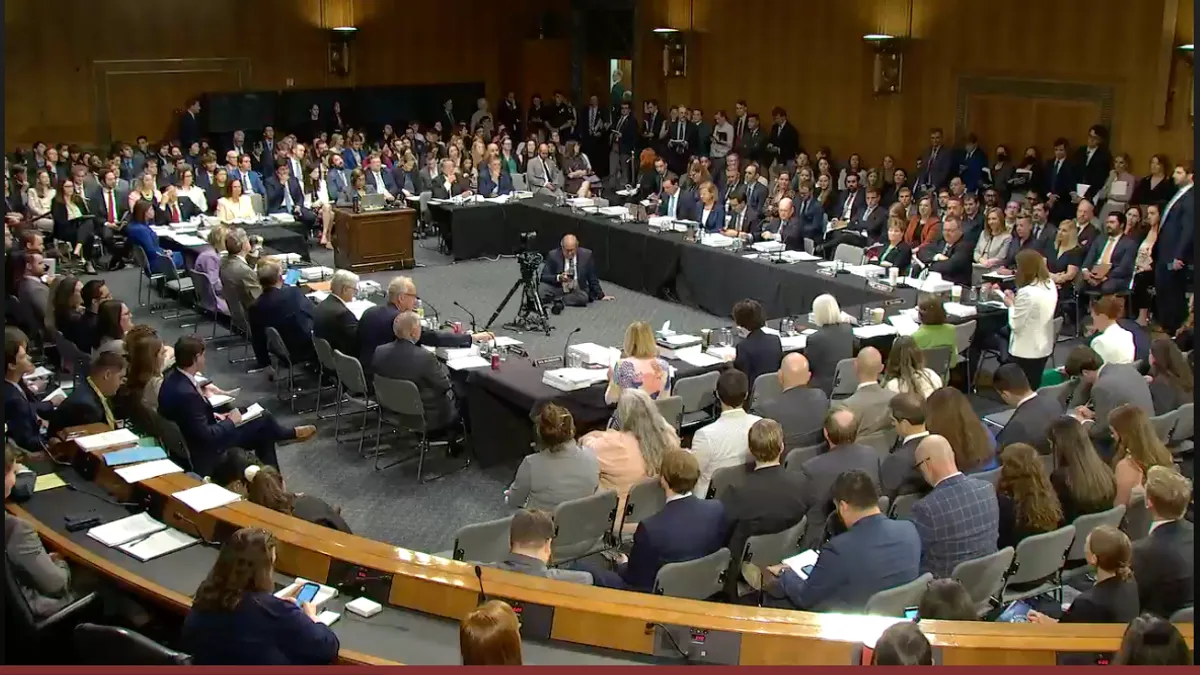Dive Brief:
- The Senate Appropriations Committee agreed on Thursday to a bipartisan fiscal year 2024 proposal that would increase Title I by $175 million and add $175 million for pre-K-12 special education state grants under the Individuals with Disabilities Education Act.
- In total, the committee voted 26-2 to recommend $79.6 billion for the U.S. Department of Education, which is about level with current year spending. In contrast, the House Appropriations Committee recommended just $67.4 billion for the department, including an 80% cut for Title I.
- During a markup meeting that covered appropriations for five other agencies, senators said that while spending limits were restricted by the June debt ceiling agreement, they were pleased to find compromises on investments like Head Start, mental health and child care.
Dive Insight:
The committee proposed an additional $700 million, or $8.7 billion total, for Child Care and Development Block Grants under the Department of Health and Human Services, as well as a $275 million bump, to $12.3 billion, for Head Start programs.
"I am glad we were able to sustain strong investments in so many of these issues — like continuing the bipartisan support I’ve worked to build for child care," said Sen. Patty Murray, D-Wash., chair of the committee. "The child care crisis is seriously holding back parents, businesses and everyone."
For higher education, the bill includes a $250 increase in the maximum Pell Grant award, for a maximum award of $7,645 for the 2024-25 academic year.
In addition, the committee voted to provide $94 million, or an increase of $66.5 million, to Department of Defense Education Activity schools for universal full-day pre-K.
Both the House and Senate proposals, however, fall much lower than President Joe Biden's proposed budget. In his recommendation, which came before the debt ceiling agreement, Biden requested $90 billion for the Education Department.
The full Senate is expected to consider the appropriations bills in September, according to Murray. FY 2024 begins Oct. 1.















